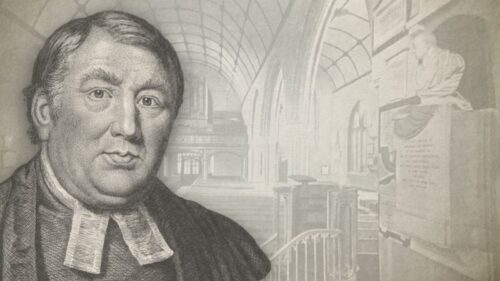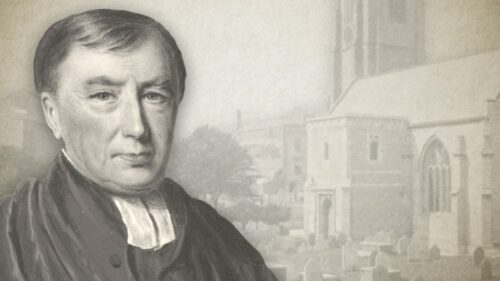
October 15—Morning Devotion
“Whose names are in the book of life.”—Philippians 4:3
How is this known? It must be a blessed privilege this, and highly desirable to attain, if there be a truly scriptural testimony to it. That there is a book of life, in which the record is made of the people of the Lamb, is without all dispute, from many parts of scripture. The church of the first-born are said to have their names written in heaven; such as are chosen of God in Christ before the world began. But these are secret things which belong to the Lord our God. Yet it is said, “the secret of the Lord is with them that fear him, and he will shew them his covenant.” Hence therefore, is not the bible a copy of this book of life? Are there not scriptural marks and characters given, by which the correspondence is proved? In both, they are distinguished by one and the same name and character. They are called the people, the seed, the offspring of Jesus. They are his, by gift, by purchase, by conquest, by a voluntary surrender. They are known by the character as well as by name. They seek salvation only in Jesus. God is their Father, Jesus their Redeemer, the Holy Ghost their sanctifier. My soul, see thy name in bible characters answering to this persuasion, and be assured that the original writing of the book of life in heaven, and the book of God for life upon earth, is his written word, is in exact correspondence. Blessed Jesus! give me in this way to know whose I am and to whom I belong, and then assured shall I be that my name is in the book of life.
Robert Hawker (1753-1827) was an Anglican (High-Calvinist) preacher who served as Vicar of Charles Church, Plymouth. John Hazelton wrote of him:
“The prominent features…in Robert Hawker's testimony…was the Person of Christ….Dr. Hawker delighted to speak of his Lord as "My most glorious Christ.” What anxious heart but finds at times in the perusal of the doctor's writings a measure of relief, a softening, and a mellowing? an almost imperceptible yet secret and constraining power in leading out of self and off from the misery and bondage of the flesh into a contemplation of the Person and preciousness of Christ as "the chiefest among ten thousand and the altogether lovely." Christ and Him crucified was emphatically the burden of his song and the keynote of his ministry. He preached his last sermon in Charles Church on March 18th, 1827, and on April 6th he died, after being six years curate and forty-three years vicar of the parish. On the last day of his life he repeated a part of Ephesians 1, from the 6th to the 12th verses, and as he proceeded he enlarged on the verses, but dwelt more fully on these words: "To the praise of His glory Who first trusted in Christ." He paused and asked, "Who first trusted in Christ?" And then made this answer: "It was God the Father Who first trusted in Christ."
Robert Hawker on the Biblical Covenants (Complete)
Robert Hawker's Poor Man's Morning Portions






